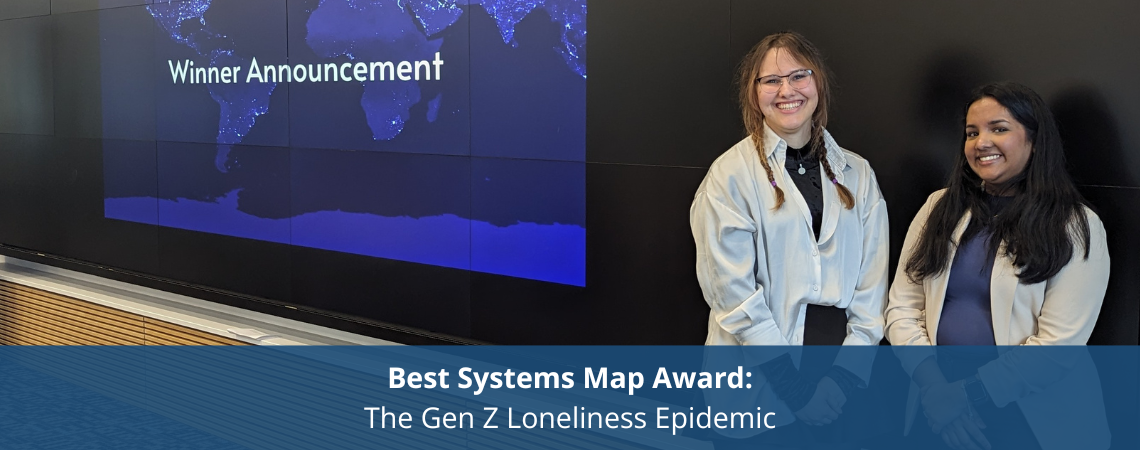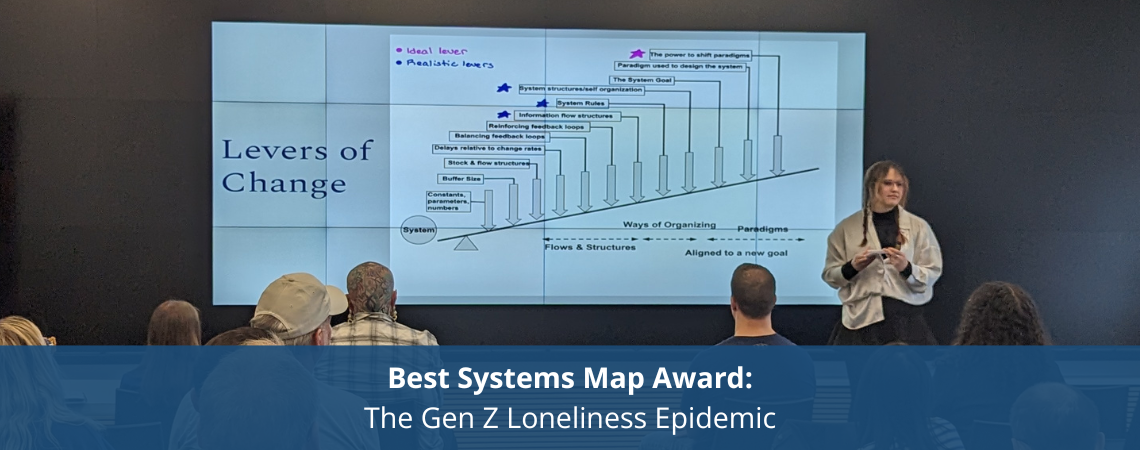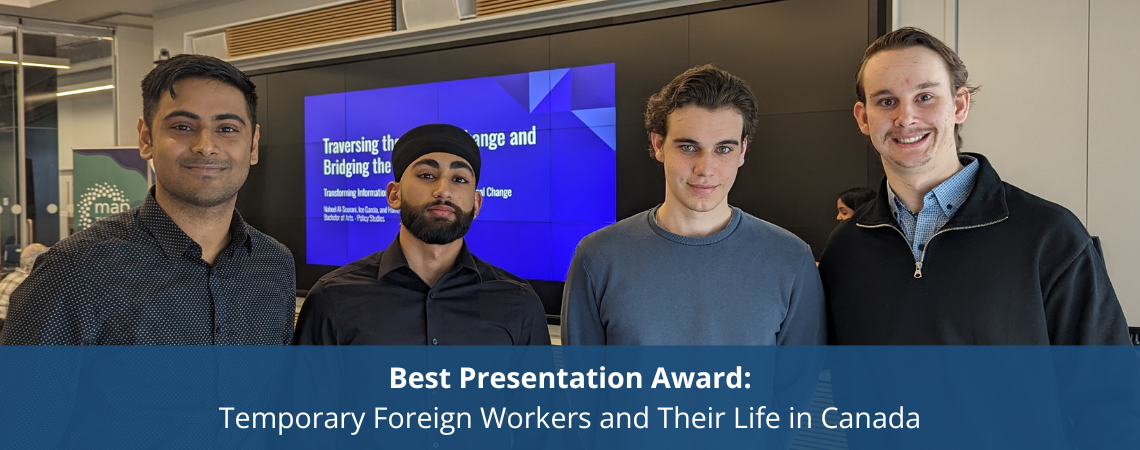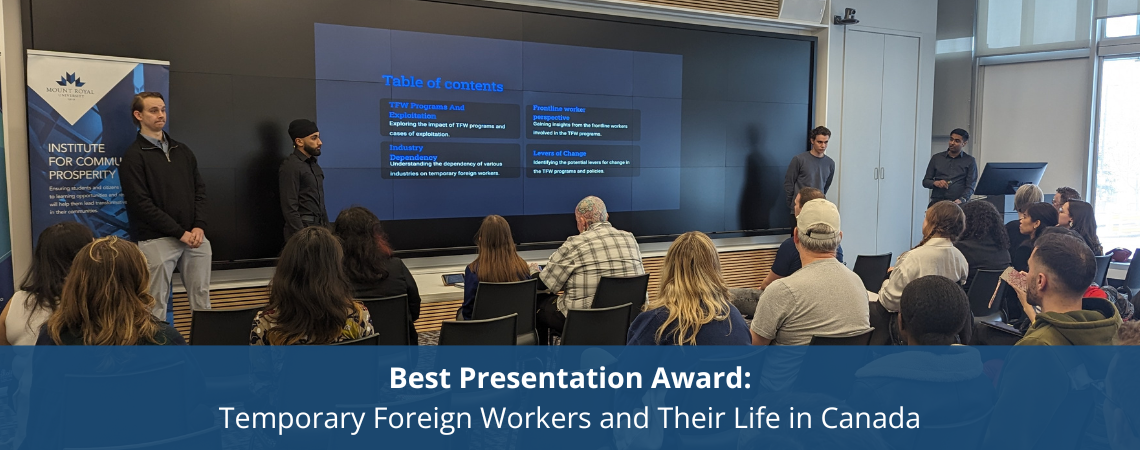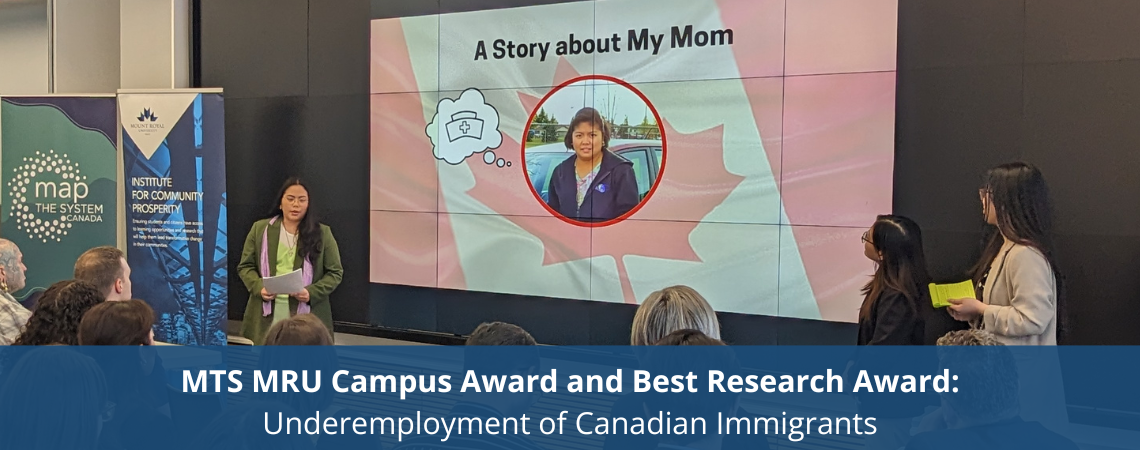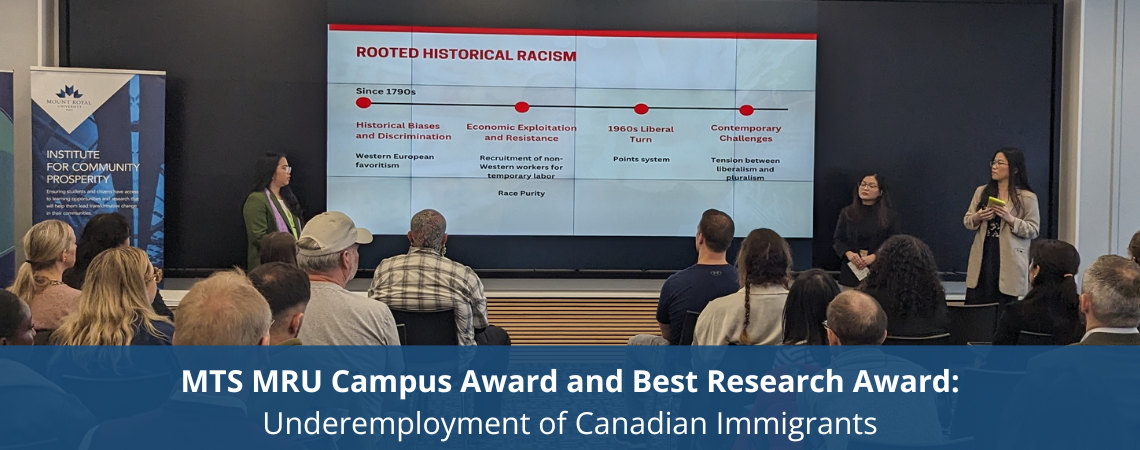Celebrating Our 2024 Map the System Campus Finalists!
Posted April 15, 2024 - Cordelia Snowdon-Lawley
Students embed themselves in the problem space to tackle wicked challenges.

Congratulations to the top five teams who competed at the Map the System MRU Campus Final! We are so proud of the presentations and excited to announce our award winners and the team that will be moving on to the Canadian Final in May.
14 teams completed submissions at MRU this year - marking the largest group of competitors on our campus! James Stauch, Executive Director of the Institute, had the opportunity to review the submissions and was amazed by their work: “All the teams were exceptional and what was most impressive was how many students were first or second year students." Although Map the System is open to any student or recent alumni on campus, this program typically sees senior-level competitors. This shift speaks to the quality of systems thinking on campus and expanding opportunities for students to get involved as changemakers earlier.
The excellent roster of submissions was narrowed down to the five teams who competed for our team of judges on April 4th. These finalists presented on topics including mental health and loneliness, transforming information flows for institutional change, and the experience of temporary foreign workers and newcomers, and the work each team put in their analysis made the judge’s decision challenging. Thank you to MRU Faculty Jordan Kidneym and Dr. Naureen Mumtaz, and to Map the System Alumni Emma Berger for your contributions to Map the System and ongoing dedication to supporting students!
We also extend our gratitude to the many ATCO members who came out to cheer on the student finalists. Justin Young, Manager, Transformation at ATCO joined us in person and appreciated the students’ willingness to engage with problems rather than jumping into solutions. “In the corporate world, people really get hooked on solutions and when they have an idea they want to go. They don’t always spend the time to ask themselves if we are answering the right problem. I am really encouraged when it comes to events like this because you see people embedding themselves in the problem space.”
Best Systems Map Award
The 2024 Award for Best Systems Map was awarded to Dana Dutton for their incredible work capturing the "Gen z Loneliness Epidemic". Dutton artfully mapped the factors contributing to experiences of loneliness including declining socialization spaces, capitalism, colonialism, transactional approaches to companionship, and generational divides, and showed levers of change that could shift these paradigms. Noting the need to shift the conversation and validate that loneliness is a systems problem, Dutton adds, “the knowledge that the responsibility for loneliness is not an individual issue may reduce the stress people feel, and put that responsibility on the root causes.”
Best Presentation Award
The 2024 Award for Best Presentation went to Ryan Davis, Ajmer Singh, Jacob Jungen, and Prabhdeep Tamber in recognition of their detailed presentation "Temporary Foreign Workers and Their Life in Canada." Their team openly shared their personal experiences with different aspects of the Temporary Foreign Worker Program, and highlighted the need for more safeguards to limit the exploitation that occurs in this system. Nation-wide, we are reliant on these workers but do not provide fair opportunities and protections for them.
Best Research Award and Top MRU Team
Linh Bui, Ally Phan, and Andrea Barlaan's work documenting the "Underemployment of Canadian Immigrants" wowed the judges and was recognized with not only the 2024 Best Research Award but also the Top MTS MRU Team Award. In their analysis, which contained a combination of systems maps including the iceberg model, timeline, flowchart, and stakeholder maps, Bui, Phan, and Barlaan brought together insights from a wide-range of resources and numerous stakeholder conversations. Their team also complimented their detailed research by linking it to a story in their family, further emphasizing their findings.
The team shared there are significant disparities in employment opportunities and immigrant skill underutilization, and that the pattern of bias against foreign qualifications exists closer to the surface of this issue. As noted in their research, "contrary to common belief, foreign credential recognition isn't the root cause, but rather a symptom of deeper issues related to systemic barriers."
Reflecting on the presentations, Alita Vaz, MRU Map the System Campus Lead, captured the importance of linking the research to the students' interests and lived experiences. Vaz noted “I feel like all of their passions really shone through in their presentations and research.” Vaz further emphasized each team’s ability to leverage their passions to find aspects of their topic that they might now have known existed before.
As the top MRU Campus Team, Bui, Phan, and Barlaan will be moving on to the Canadian Final in May. This in-person final is welcome anyone who is interested to join us in cheering on the student competitors and learning about the complex systems they explored.
RSVP to attend the Map the System Canadian Final. [New Tab].
Learn more about the Map the System at Mount Royal University, and read about last year’s winners.
"There is a lot of buzz about 21st century skill sets, often summarized as critical thinking, collaboration, creativity, and communication. Map the System asks students to draw on all of these skill sets in a way that gets students thinking about problem-solving, but specifically in the context of real-world complexity."
- Student Guide to Mapping a System, 4th Edition.


